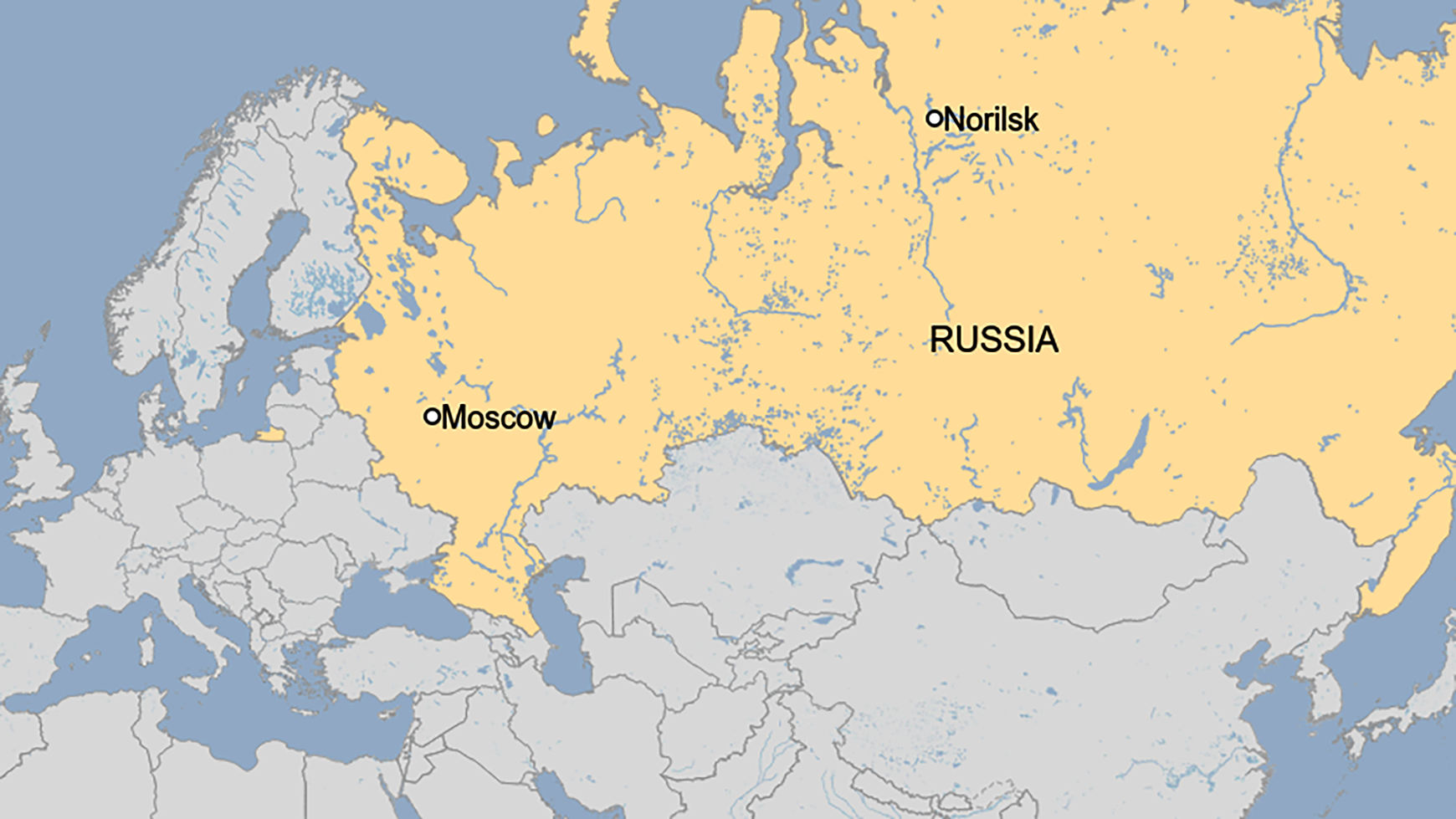Biodiversity & Environment
Oil Spill in Siberia
- 05 Jun 2020
- 4 min read
Why in News
Recently, Russia has declared a state of emergency in its Krasnoyarsk Region after a power plant fuel leaked causing 20,000 tonnes of diesel oil to escape into the Ambarnaya River.
- Krasnoyarsk Region is located in the vast and sparsely populated Siberian peninsula and the Ambarnaya river is part of a network that flows into the environmentally sensitive Arctic Ocean.
Key Points
- Reasons for the Spill:
- The thermoelectric power plant which is located near Norilsk city (known as the country’s nickel capital), around 3000 km northeast of Moscow, is built on permafrost which has weakened over the years owing to climate change.
- This caused the pillars that supported the plant’s fuel tank to sink, leading to a loss of containment.
- According to a report, Norilsk is one of the most heavily polluted places on Earth.
- The thermoelectric power plant which is located near Norilsk city (known as the country’s nickel capital), around 3000 km northeast of Moscow, is built on permafrost which has weakened over the years owing to climate change.
- Concerns:
- The leak can have a serious impact on the local ecology.
- The Ambarnaya river flows to the Pyasino lake and river Pyasina, which connects it to the Kara Sea, a part of the Arctic Ocean.
- The most toxic components of diesel fuel are light aromatics (benzene, toluene, ethylbenzene and xylene), which in significant quantities will nevertheless dissolve in water and can in no way be collected.
- Damages to the Arctic waterways due to the spill could be at least over UDS 76 million. The estimate does not include atmospheric damage due to greenhouse gases and soil pollution.
- According to the environmentalists, the river would be difficult to clean, given its shallow waters and remote location, as well as the magnitude of the spill.
- The World Wildlife Fund (WWF) described this as the second-largest known oil leak in modern Russia’s history in terms of volume.
- It is only exceeded by a crude oil spill in the northwestern region of Komi that took place over several months in 1994.
- The leak can have a serious impact on the local ecology.
- Measures:
- The declaration of the state of emergency would bring in extra forces and federal resources for the clean-up efforts.
- The Ambarnaya river is difficult to clean up because the remote location has no roads.
- Boom obstacles (an obstacle strung across a navigable stretch of water to control or block navigation) are placed in the river but they are unable to contain the oil because of shallow waters.
- There is a need to establish monitoring of water quality downstream up to the mouth of the Pyasina river.
- Diesel fuel is lighter than oil so it is likely to evaporate rather than sink but it is more toxic to clean up.
- Burning the fuel would be too risky as it will generate a lot of heat and will lead to the melting of ice.
- It is recommended to dilute the layer with reagents.
- A reagent is a substance or compound added to a system to cause a chemical reaction or added to test if a reaction occurs.
Permafrost
- The ground that remains frozen for two or more consecutive years is considered permafrost.
- Permafrost is composed of rock, soil, sediments and varying amounts of ice that bind elements together.
- Some permafrost is frozen for tens, hundreds or even thousands of years.







